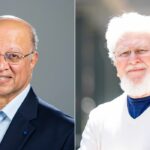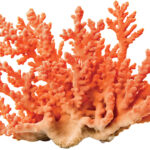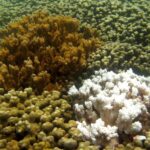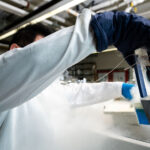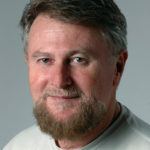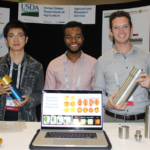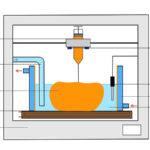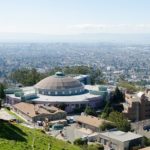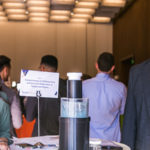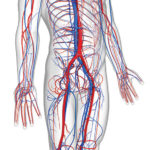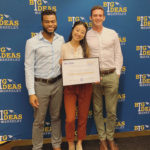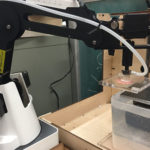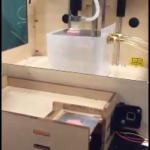UC Berkeley engineering professors Ashok Gadgil and Boris Rubinsky are among 162 inventors named 2023 fellows of the National Academy of Inventors (NAI), the organization announced today (Tuesday, Dec. 12). Election as a fellow in the academy is the highest professional distinction awarded solely to inventors.
A cool way to save coral
Coral is in crisis. Recent models estimate that 95% or more of the world’s coral could die by the mid-2030s due to climate change. But a new, rapid approach to coral preservation could help stem the tide. Technology discovered by Boris Rubinsky, Professor of the Graduate School at the Department of Mechanical Engineering and professor emeritus of …
New Technique Could Facilitate Rapid Cryopreservation of All Coral Species
Smithsonian’s National Zoo and Conservation Biology Institute (NZCBI) researchers have achieved a breakthrough in the fight to save the world’s coral reefs from climate change annihilation, and it may further the goal of cryopreserving human organs. In a paper published today, Aug. 23, in Nature Communications, Mary Hagedorn and E. Michael Henley, research scientists at NZCBI, and colleagues …
ME Professor Boris Rubinsky Helps Team With Advances in Cryopreservation
The rat kidney on the operating table in front of Joseph Sushil Rao looked like it had been through hell. Which it had—a very cold one. Normally a deep pink, this thumbnail-size organ was blanched a corpselike gray. In the past 6 hours, it had been plucked from the abdomen of a white lab rat, …
ME Professor Boris Rubinsky Awarded 2023 H.R. Lissner Medal
ME Professor of the Graduate School Boris Rubinsky has been awarded the 2023 H.R. Lissner Medal from the Bioengineering Division of the American Society of Mechanical Engineers (ASME). The H.R. Lissner Medal recognizes outstanding achievements in the field of Bioengineering in the form of (1) significant research contributions in bioengineering; (2) development of new methods …
Study of aqueous salt solutions deepens our understanding of icy planets’ oceans
Researchers at UC Berkeley, in collaboration with the University of Washington, have developed a new way to measure properties of salty water that may help us better understand whether the icy moons in the far reaches of our solar system can support life. In a study published in Cell Reports Physical Science, a team of researchers …
‘Extremely cutting-edge’: UC Berkeley scientists revive frozen heart tissue
UC Berkeley researchers completed a study successfully reviving human heart tissue after preserving it in subfreezing conditions for one to three days. The study was conducted by Boris Rubinsky, Professor of the Graduate School in the department of mechanical engineering, and Kevin Healy, professor of bioengineering, materials science and engineering. Other contributors include Matthew Powell-Palm, …
Cold-hearted science: Supercooling technique advances preservation of human tissue
Researchers at UC Berkeley successfully revived human heart tissue after it had been preserved in a subfreezing, supercooled state for 1 to 3 days. By preserving the cardiac tissue at a constant volume in a rigid isochoric chamber, researchers were able to prevent the formation of ice crystals that could have damaged the micro heart …
New food freezing concept improves quality, increases safety and cuts energy use
Shifting to a new food freezing method could make for safer and better quality frozen foods while saving energy and reducing carbon emissions, according to a new study. A complete change over to this new method of food freezing worldwide could cut energy use by as much as 6.5 billion kilowatt-hours each year while reducing …
Seaweed Farms in River Estuaries Significantly Reduce Nitrogen Concentrations and Prevent Environmental Pollution
A new study by Tel Aviv University and Berkeley University proposes a model according to which the establishment of seaweed farms near river estuaries significantly reduces nitrogen concentrations in the river and prevents environmental pollution in streams and oceans. The study was headed by doctoral student Miron Zulman, under the joint counseling of Prof. Alexander …
Capstone Project Profile: Precision Freezing 3D Bioprinter for Large Scale Tissue Engineering
The organ shortage for transplants is a growing problem all over the world. Bioprinting could be a solution to this however current attempts at 3-D printing biological materials are encumbered by the slow rate of the process and the “soft” nature of the material. Previous “successes” have only yielded objects no larger than a dime, …
UC Berkeley researchers receive grant for biopreservation research, center establishment
UC Berkeley researchers — in collaboration with researchers from the University of Minnesota, Massachusetts General Hospital and UC Riverside — won a National Science Foundation award Aug. 4 of $26 million over the next five years to fund a new center for biopreservation research.
Capstone Project Profile: Cryotechnology for 3D Bioprinting and Isochoric Preservation of Tissues and Organs
Only 10% of patients worldwide in need of an organ receive one, while the window of organ delivery is currently limited to 4-6 hours. The most common way to preserve an organ is to cool it in order to slow its metabolism, but current methods are limited because lower temperatures lead to the formation of …
Mass-Producing Biomaterials
Researchers led by mechanical engineering professor Boris Rubinsky and graduate student Gideon Ukpai have developed a technique that may be key to the viability of bioprinting, an extension of 3D printing that could allow whole organs — as well as living tissue, bone and blood vessels — to be printed on demand.
MEng Capstone team wins 2nd place in Big Idea pitch competition
A group of Master of Engineering and PhD students recently placed 2nd in the “Hardware for Good” category of the Big Idea competition at UC Berkeley. Their project utilizes cryotechnology for 3D bioprinting and isochoric preservation to increase access to tissues and organs for millions and quadrupling current preservation times. They were chosen from over …
New device paves the way to 3D-printed organs, food
Robotic arm stacking layers of 2D tissues. (Photo courtesy of Gideon Ukpai, UC Berkeley)
Mass producing biomaterials: UC Berkeley innovations speed up 3D bioprinting
More than 113,000 people are currently on the national transplant list. And with a shortage of donors, this means that about 20 people will die every day while waiting for an organ, according to the U.S. Department of Health.
International Conferences to Celebrate ME Professor Boris Rubinsky’s 70th Birthday
8th World Congress of Biomechanics 8-12 July, 2018 in Dublin, Ireland “Cryotherapy and Cryopreservation Boris Rubinsky’s 70th Birthday Celebration” Through the online registration system, you will have an opportunity to book your attendance, hotel, social events and optional tours all through the “one click”. For any queries regarding registration, socials, tours and accommodation, please email …
ME Professor Boris Rubinsky Receives Medal and Honorary Membership from the Romanian Academy of Technical Sciences
ME Professor Boris Rubinsky has been awarded the Medal of the Romanian Academy of Technical Sciences, and also made an Honorary Member of the academy. The academy is an “autonomous, non-governmental entity, organized as a national forum of scientific personalities in engineering sciences. It has the purpose to promote debates, initiatives, research, technical creation and …
ME Professor Boris Rubinsky Awarded the Doctor Honoris Causa by the University of Galati
On October 19, 2015, ME Professor Boris Rubinsky was awarded the Doctor Honoris Causa by the Senate of ””Lower Danube”” of the University of Galati in his native Romania. The Senate boasts that “”Professor Rubinsky, through exceptional scientific work, is a world-class scientist, which honors the American people, the people of Israel, and Romania by being born …


